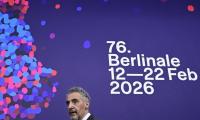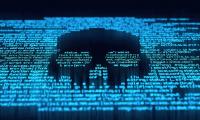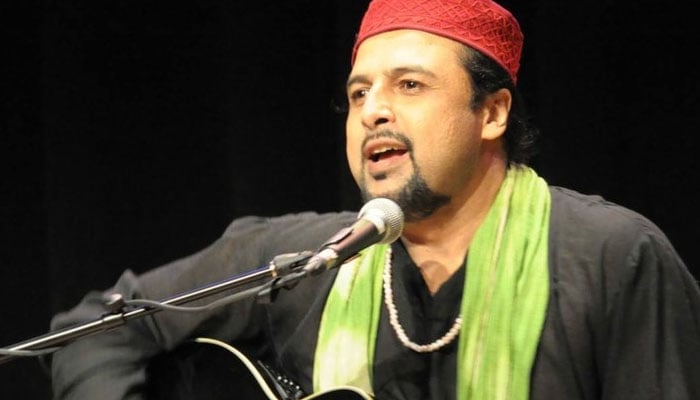Einstein understood the disease of mankind
In 2008, I saw a vision of what Kashmir is all about, and can still be.
As my band, Junoon, played the first rock concert in the disputed Indian state, I saw firsthand the hope and passion in the eyes of several thousand girls and boys . ambitious college students who were yearning for peace, justice, jobs and the right to live with dignity in their ancestral homeland.
It’s this memory that comes back to me as the world watches a deep malaise afflicting Indian society, and nowhere more so right now than in Kashmir.
Einstein famously said nationalism is an infantile disease. It is the measles of mankind. He might have been predicting the rise of Indian Prime Minister Narendra Modi and the Hindu nationalism of the Rashtriya Swayamsevak Sangh, or RSS, the group in whose beliefs Modi is steeped.
Ever since India announced it would revoke autonomy for the country’s only Muslim-majority state, a huge humanitarian crisis has grown daily. Seven million Kashmiris, many under the age of 20, have been under curfew, silenced and held captive inside their own homes. They have no access to medicine, the internet, phones, or TV. Their health, safety and freedoms are at increasingly greater risk.
It’s not just Kashmiris’ rights and welfare that are in jeopardy. The tension over Kashmir between the two nuclear-armed nations of India and Pakistan threatens peace and stability in the region and all over the world. The famous Doomsday Clock developed by the Bulletin of the Atomic Scientists is ominously at two minutes to midnight -- helped along by the India-Pakistan conflict – in what the organization calls “a state as worrisome as the most dangerous times of the Cold War.”
Doubt their characterization? India’s defense minister Rajnath Singh said just days ago the country may scrap its “no first use” policy on nuclear weapons. That’s a recipe for catastrophe with deadly implications for the whole world.
And it could all start in Kashmir. No religious minority can withstand the sort of majority ideology of hate and violence that Modi is espousing. For South Asians, it’s all too familiar. The RSS and the Hindu militants who were responsible for Mahatma Gandhi’s assassination are considered role models by Modi. They’re now threatening to ethnically cleanse Kashmir, using rape as a weapon to change its demographic identity. This won't stop if the world stays silent.
Even more urgent, the world cannot allow Modi's unilateralism to threaten a nuclear apocalypse.
Global institutions like the United Nations Security Council must do more than tell India and Pakistan to resolve their differences bilaterally – as the security council recently did. The UNSC can start with an emergency meeting on the situation. There may even be a role for the International Criminal Court. At the very least, concerned citizens around the globe have to help protect human rights and the rule of law. Without these protections, democracy is a lost cause.
Make no mistake: none of this is anti-Indian. No less a patriotic Indian than Jawaharlal Nehru promised Kashmir a plebiscite -- which has never been held. The time to hold it is now. Prominent Indians including politician Shashi Tharoor and author Arundhati Roy have pointed to the danger to India’s pluralism from what’s happening in Kashmir.
Tharoor recently wrote, movingly, that by asserting direct control over Kashmir, Modi is “remaking the country in the image of his chauvinist party.” This new India, said Tharoor, is worlds away from the land of Gandhi and Nehru. Those visionaries, as Tharoor wrote, “preached non-violence, religious co-existence and the acceptance of difference.”
Roy writes of “seeing ragged children thread their way through traffic in Delhi, selling outsized national flags and souvenirs bearing the inscription”, “Mera Bharat Mahan” –“ My India is Great. But she says it’s hard to feel that way herself when it looks very much as if Modi’s government has gone rogue.”
That “rogue India” – that besieged Kashmir – isn’t the one I saw as my band and I played at the edge of the ethereal Dal lake in Srinagar. The ethnic makeup of my band itself spoke to what Kashmir can be. We were from Kashmir, Lahore, Calcutta, New York and Toronto, and all found a common language of compassion, freedom and unity. For that one day in May, the guitars silenced the guns.
What happens next in Kashmir will help determine the direction of the world, toward peace and the rule of law – or the law of the jungle. Injustice anywhere is a threat to justice everywhere, as Dr. Martin Luther King Jr. famously said. Let’s choose justice, and peace.
-
 Sydney Sweeney Pays Tribute To 'Euphoria' Co-star Eric Dane After His Death: 'Forever Will Love You'
Sydney Sweeney Pays Tribute To 'Euphoria' Co-star Eric Dane After His Death: 'Forever Will Love You' -
 Kayla Nicole Reveals Surprising Reason Behind Separation From Travis Kelce
Kayla Nicole Reveals Surprising Reason Behind Separation From Travis Kelce -
 Andrew Made Major Demand To King Charles Before Arrest
Andrew Made Major Demand To King Charles Before Arrest -
 Political Tensions Steal Spotlight At Berlin Film Festival Closing Ceremony
Political Tensions Steal Spotlight At Berlin Film Festival Closing Ceremony -
 King Charles In Hot Water After Andrew Arrest: ‘Step Down!’
King Charles In Hot Water After Andrew Arrest: ‘Step Down!’ -
 Space-based Solar Power Could Push The World Beyond Net Zero: Here’s How
Space-based Solar Power Could Push The World Beyond Net Zero: Here’s How -
 Kate Walsh Remembers Her 'Grey’s Anatomy' Co-star Eric Dane Following His Death At 53
Kate Walsh Remembers Her 'Grey’s Anatomy' Co-star Eric Dane Following His Death At 53 -
 AI Ad Wars Begin As Perplexity Snubs ChatGPT Advertising
AI Ad Wars Begin As Perplexity Snubs ChatGPT Advertising -
 Microsoft Copilot Bug Exposes Confidential Emails To AI
Microsoft Copilot Bug Exposes Confidential Emails To AI -
 Eric Dane Final Emotional Words Revealed After Tragic Death
Eric Dane Final Emotional Words Revealed After Tragic Death -
 Prince William 'furious' Regarding His Own Future After Andrew Arrest
Prince William 'furious' Regarding His Own Future After Andrew Arrest -
 Charli XCX Reveals ‘confusing’ Toll ‘Brat’ Popularity Took On Her
Charli XCX Reveals ‘confusing’ Toll ‘Brat’ Popularity Took On Her -
 Android Phones At Risk: PromptSpy Malware Exploits AI
Android Phones At Risk: PromptSpy Malware Exploits AI -
 Barry Manilow Gives Insight Into 'very Depressing' Doctor Visit As He Postpones 2026 Arena Tour Due To Cancer
Barry Manilow Gives Insight Into 'very Depressing' Doctor Visit As He Postpones 2026 Arena Tour Due To Cancer -
 Margot Robbie Opens Up About Imposter Syndrome ‘crisis’
Margot Robbie Opens Up About Imposter Syndrome ‘crisis’ -
 'Desperate' Sarah Ferguson Won't Go Down Without A Fight
'Desperate' Sarah Ferguson Won't Go Down Without A Fight




